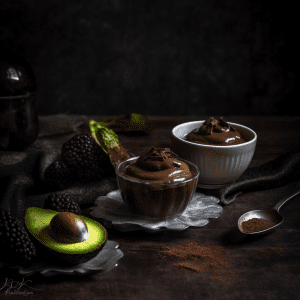Please note that some of the links on this website are affiliate links. I will earn a commission if you decide to make a purchase after clicking through the link. As an Amazon Associate I earn from qualifying purchases.
Start your day on a vibrant and nutritious note with this spirulina breakfast recipe. Packed with wholesome ingredients and the powerful goodness of spirulina, this recipe offers a delicious and healthy way to kick-start your morning routine.
Spirulina Green Smoothie Bowl
Prep Time: 10 minutes
Cook Time: 0 minutes
Total Time: 10 minutes
Yield: Serves 1
Cuisine: Fusion
Author: Scott Stokes

Ingredients:
- 1 ripe banana
- 1 cup spinach leaves
- 1/2 cup unsweetened almond milk (or any preferred milk)
- 1 tablespoon spirulina powder
- Toppings: sliced fruits, granola, chia seeds, shredded coconut

- In a blender, combine the banana, spinach, almond milk, and spirulina powder.
- Blend until smooth and creamy.
- Pour the mixture into a bowl.
- Top with your favorite toppings, such as sliced fruits, granola, chia seeds, and shredded coconut.
- Enjoy the refreshing and nutrient-rich spirulina green smoothie bowl!
Spirulina Chia Pudding
Prep Time: 5 minutes
Cook Time: 0 minutes
Total Time: 5 minutes (plus refrigeration time)
Yield: Serves 1
Cuisine: Fusion
Author: Scott Stokes
Ingredients:
- 2 tablespoons chia seeds
- 1 cup unsweetened almond milk (or any preferred milk)
- 1 tablespoon maple syrup or honey (optional, for sweetness)
- 1 teaspoon spirulina powder
- Fresh berries or sliced fruits for topping
Instructions:
- In a bowl, combine chia seeds, almond milk, maple syrup or honey (if using), and spirulina powder.
- Stir well to ensure the chia seeds are evenly distributed.
- Let the mixture sit for about 5 minutes, then stir again to prevent clumping.
- Cover the bowl and refrigerate overnight or for at least 2-3 hours until the chia seeds absorb the liquid and form a pudding-like consistency.
- Once set, give it a final stir and top with fresh berries or sliced fruits.
- Serve chilled and enjoy the nutritious and delicious spirulina chia pudding!
These healthy breakfast recipes featuring spirulina are quick and easy to prepare, providing a nutritious and energizing start to your day. Feel free to customize the toppings and adjust the sweetness according to your preference.
Why Should You Start Your Day with Spirulina?
- Nutrient Powerhouse: Spirulina is loaded with essential nutrients, including protein, vitamins, and minerals, making it a fantastic way to start your day on a nutritious note.
- Rich in Protein: Spirulina is an excellent plant-based protein source, containing all the essential amino acids your body needs for muscle repair and growth.
- Antioxidant-Rich: Spirulina is packed with antioxidants, which help protect your cells from damage caused by free radicals, promoting overall health and well-being.
- Boosts Energy Levels: The abundance of vitamins and minerals in spirulina can help enhance your energy levels, keeping you energized and focused throughout the day.
- Supports Immune Function: Spirulina contains immune-boosting properties that can strengthen your immune system, helping you ward off common illnesses and infections.
- Promotes Detoxification: Spirulina has natural detoxifying properties, aiding in the elimination of toxins from your body and supporting optimal liver function.
- Improves Digestive Health: Spirulina is rich in fiber, which promotes healthy digestion and helps maintain regular bowel movements.
- Supports Heart Health: Spirulina may help lower cholesterol levels, reduce blood pressure, and improve overall cardiovascular health.
- Anti-Inflammatory Properties: The presence of phycocyanin in spirulina has anti-inflammatory effects, which can help reduce inflammation and support a healthy inflammatory response in the body.
- Weight Management: Spirulina is low in calories and high in nutrients, making it a great addition to a balanced diet for those looking to manage their weight effectively.
By incorporating spirulina into your breakfast routine, you can enjoy these incredible health benefits and start your day on a positive and nourishing note.
(Note: It’s always recommended to consult with a healthcare professional before adding any new supplements or ingredients to your diet.)
| Body System | Benefits of Spirulina |
|---|---|
| Immune System | Strengthens immune function and promotes overall wellness. |
| Digestive System | Improves digestion, aids in detoxification, and supports a healthy gut. |
| Cardiovascular System | Helps maintain healthy cholesterol levels and supports heart health. |
| Muscles and Joints | Provides essential amino acids for muscle repair and growth, and aids in reducing inflammation. |
| Brain and Cognitive Health | Supports brain function, enhances focus and concentration, and promotes mental clarity. |
| Skin Health | Nourishes the skin with antioxidants and nutrients, promoting a healthy and radiant complexion. |
| Energy and Vitality | Boosts energy levels, reduces fatigue, and supports overall vitality and well-being. |
| Eye Health | Contains nutrients that support healthy vision and protect against age-related eye diseases. |
| Detoxification | Assists in removing toxins from the body and supports optimal liver function. |
| Weight Management | Aids in weight management by providing essential nutrients and promoting a feeling of fullness. |
Incorporating spirulina into your daily routine can have a positive impact on various systems of your body, contributing to your overall health and well-being.
Pros of Spirulina:
- High Nutritional Value: Spirulina is rich in essential vitamins, minerals, and protein, providing a concentrated source of nutrients.
- Antioxidant Properties: It contains powerful antioxidants that help protect the body against oxidative stress and damage caused by free radicals.
- Potential Anti-inflammatory Effects: Spirulina may help reduce inflammation in the body, which is linked to various chronic diseases.
- Immune System Support: The nutrients in spirulina can strengthen the immune system and enhance its response to pathogens.
- Heart Health Benefits: Some studies suggest that spirulina may help lower blood pressure and improve cholesterol levels, promoting cardiovascular health.
- Detoxification Support: Spirulina has been found to aid in detoxification processes in the body, supporting the elimination of toxins.
- Potential Anti-Cancer Properties: Some research suggests that spirulina may have anti-cancer effects, although more studies are needed.
- Weight Management: Spirulina’s high protein content and potential appetite-suppressing properties may contribute to weight management.
- Sustainable and Environmentally Friendly: Spirulina cultivation requires minimal land and water, making it an eco-friendly food source.
- Versatile and Easy to Use: Spirulina can be incorporated into various dishes, such as smoothies, salads, and snacks, making it convenient to include in your diet.
Cons of Spirulina:
- Allergic Reactions: Some individuals may be allergic to spirulina, experiencing symptoms such as itching, rash, or gastrointestinal issues.
- Contamination Risks: If not sourced from reputable manufacturers, spirulina supplements may be contaminated with harmful substances.
- Potential Interactions with Medications: Spirulina may interact with certain medications, so it’s important to consult with a healthcare professional if you’re taking any medications.
- Digestive Issues: Spirulina may cause digestive discomfort, such as diarrhea or stomach cramps, in some individuals.
- Quality and Purity Concerns: Ensuring the quality and purity of spirulina products is crucial, as low-quality sources may contain contaminants.
While spirulina offers numerous potential health benefits, it’s important to be aware of these cons and consult with a healthcare professional before incorporating it into your diet, especially if you have any existing medical conditions or are taking medications.
Frequently Asked Questions (FAQs):
Q: Is spirulina safe to consume?
A: Spirulina is generally safe for most people when consumed in appropriate amounts. However, individuals with specific health conditions or allergies should consult with a healthcare professional before incorporating spirulina into their diet.
Q: Can spirulina help with weight loss?
A: Spirulina’s high protein content and potential appetite-suppressing properties may contribute to weight management. However, it’s important to note that spirulina alone is not a magic solution for weight loss and should be part of a balanced diet and healthy lifestyle.
Q: How should I incorporate spirulina into my diet?
A: Spirulina can be easily added to smoothies, juices, salads, energy bars, and snacks. Start with small amounts and gradually increase the dosage as per the recommended guidelines. It’s important to follow the instructions on the product packaging or consult with a healthcare professional for personalized advice.
Q: Can spirulina replace other sources of nutrients in my diet?
A: Spirulina is a nutrient-dense food, but it should not be considered a complete replacement for a varied and balanced diet. It is best used as a supplement to complement a healthy eating plan.
Q: Are there any side effects of spirulina?
A: Some individuals may experience mild side effects such as digestive issues, allergic reactions, or interactions with medications. It’s essential to start with small amounts and monitor your body’s response. If you experience any adverse effects, discontinue use and consult with a healthcare professional.
Q: Can pregnant or breastfeeding women consume spirulina?
A: It’s advisable for pregnant or breastfeeding women to consult with their healthcare provider before incorporating spirulina into their diet, as there may be specific considerations based on individual circumstances.
Q: Can children consume spirulina?
A: While spirulina is generally considered safe for children, it’s recommended to consult with a pediatrician or healthcare professional before giving it to children, especially in supplement form.
Q: Where can I buy spirulina?
A: Spirulina is available in various forms, including powder, capsules, and tablets. It can be found at health food stores, online retailers, and some grocery stores. Ensure that you purchase spirulina from reputable sources to ensure quality and purity.
Please note that the answers provided here are general guidelines, and it’s always best to consult with a healthcare professional or nutritionist for personalized advice and recommendations based on your specific needs and health condition.












